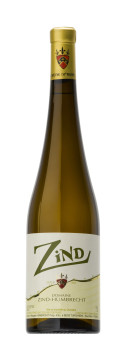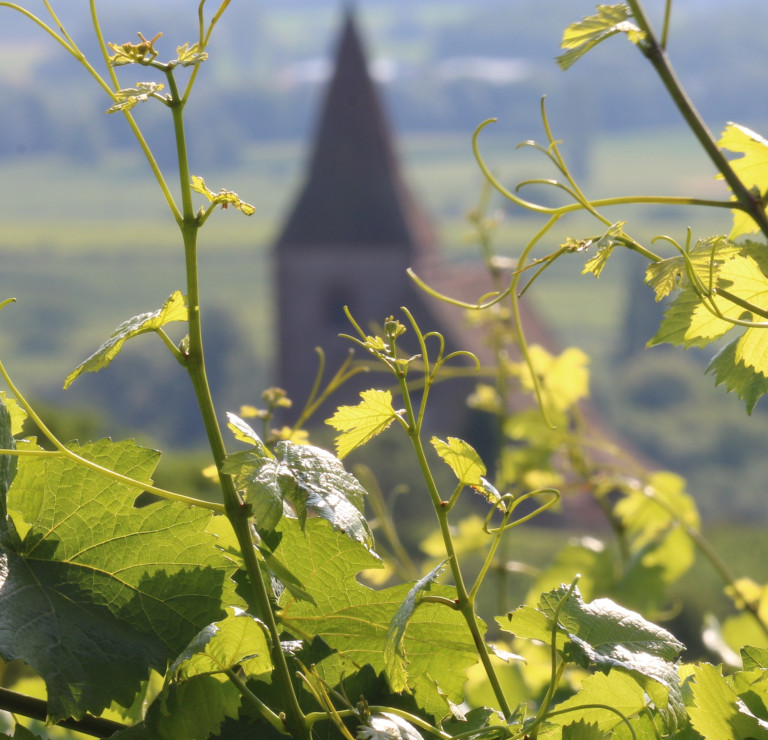
Technical presentation
| Bottling : | September 2011 |
|---|---|
| Acquired alcohol : | 12.9° |
| Residual sugar : | 7.0 g/l |
| Total acidity : | 4.8 g/l H2SO4 (7.3 g/l Acide Tartrique) |
| pH : | 3.1 |
| Yield : | 53 hl/ha |
| Average age of vines : | 20 years |
| Terroir : | Clos Windsbuhl |
| Sweetness index : | 1 |
| Soil : | Muschelkalk calcareous, South/South East facing |
Description of the wine Zind 2009
Since 2004, all the grapes which are used for this wine come from our calcareous, late ripening Clos Windsbuhl vineyard. There is 70% Chardonnay and 30% Auxerrois. Chardonnay is only allowed for the production of sparkling wine in Alsace, so, under current wine laws (which will change in the near future), we are obliged to sell this wine as Vin de Table. The original idea was to associate Auxerrois, interesting for its aromatic quality, with another grape capable to bring a better structure and more minerality to the wine. This wasn’t perhaps that necessary in 2007 or 2008, but 2009 shows how much this was a good idea! Auxerrois and Chardonnay have a common ancestor: Pinot Blanc, so it makes sense to blend them together. The grapes were harvested very healthy, with a great acidity, and, as most 2009s, with a good physiological ripeness. The wine fermented very slowly but finished with a dry mouth feel.

Tasting notes
02/2011 : This wine took a certain time to reveal its personality. The acidity is vivacious, which is quite surprising in 2009 and it took until after the racking in summer 2010 to see this wine finally opening up. The wine now shows the ability of the Clos Windsbuhl to bring a good structure. The nose shows the limestone influence: earthy, rock powder, slight smoke. The mouth is made of steel and supported by a nice acidity. Despite some residual sweetness, the palate finishes dry.

The Clos Windsbuhl of Hunawihr
The altitude of the vineyard coupled with Hunawihr’s tardy climate means that the Clos Windsbuhl is often one of the last of our vineyards to be harvested. This explains the aromatic quality of the Clos’ wines and the consistent balance of acidity, a guarantee of good ageing. Although often harvested late, the Windsbuhl grapes are only rarely botryitized, doubtless due to the altitude of the vineyard, but nevertheless often reach high levels of maturity.